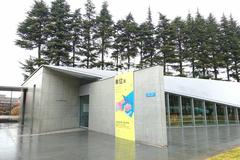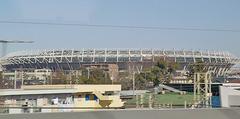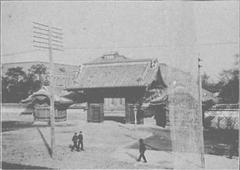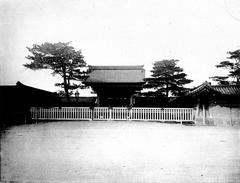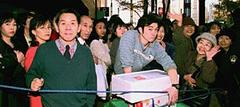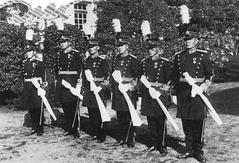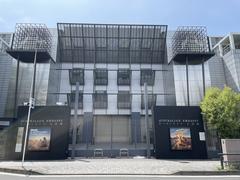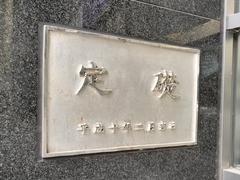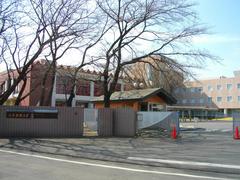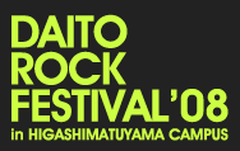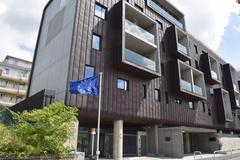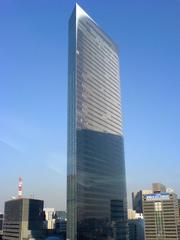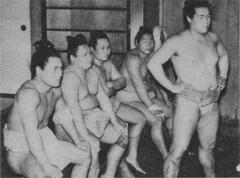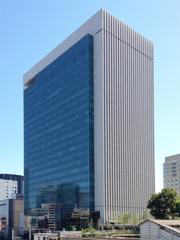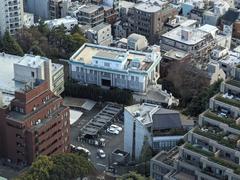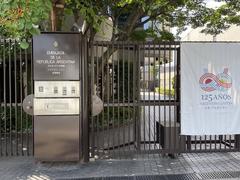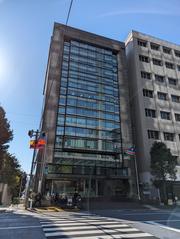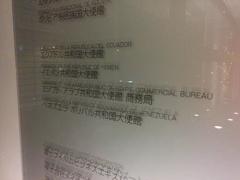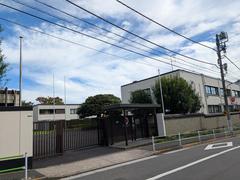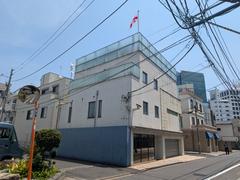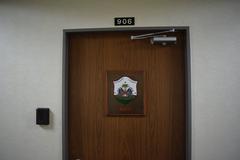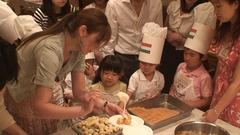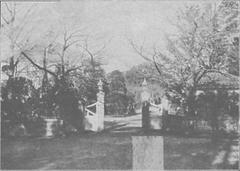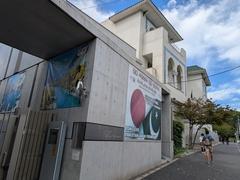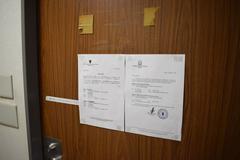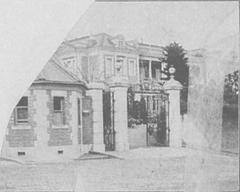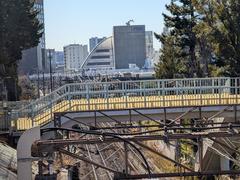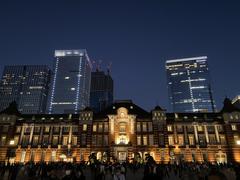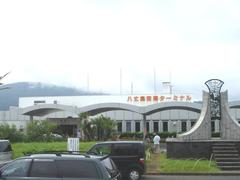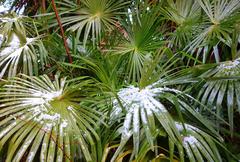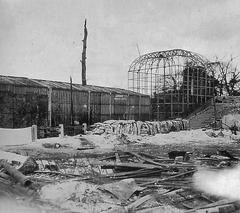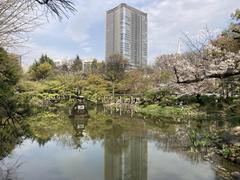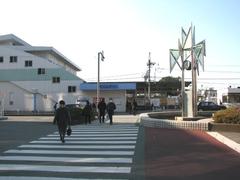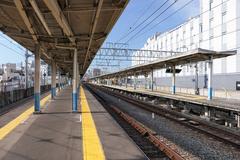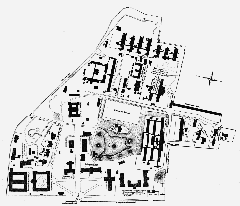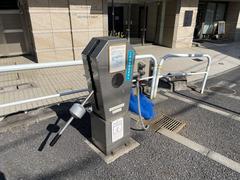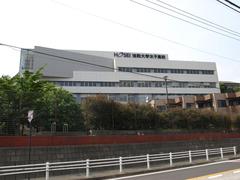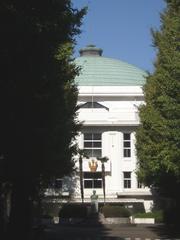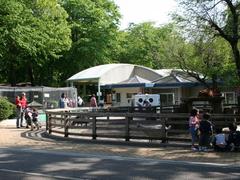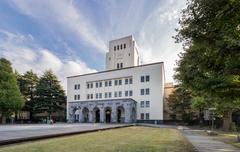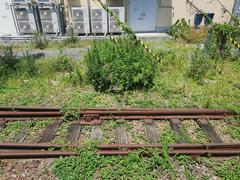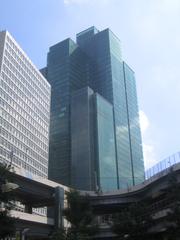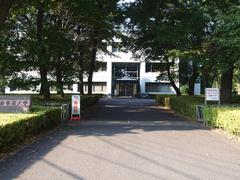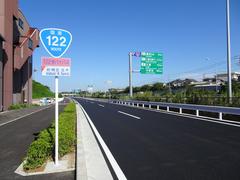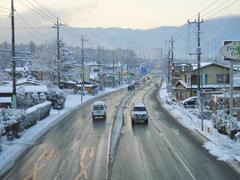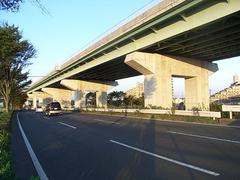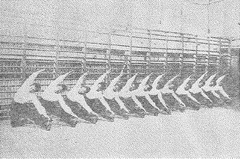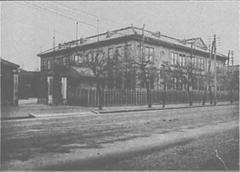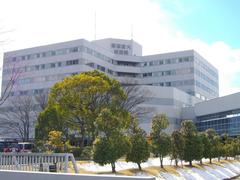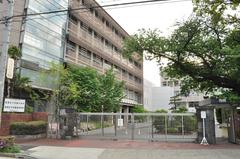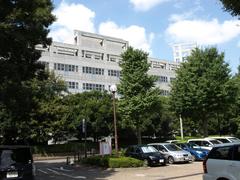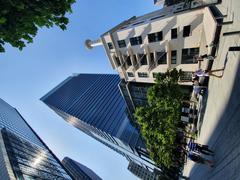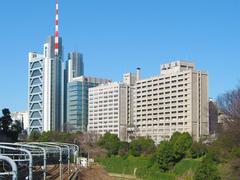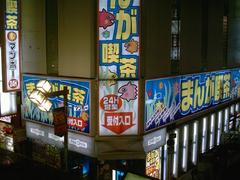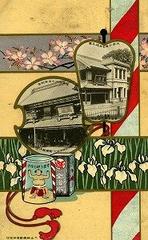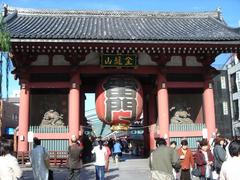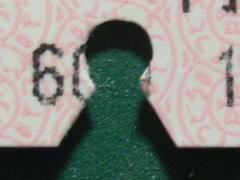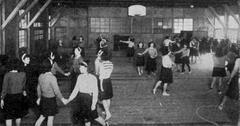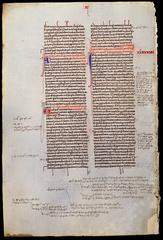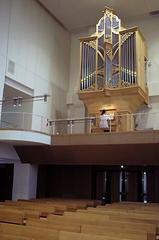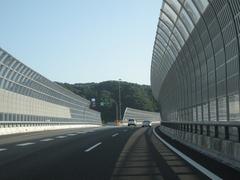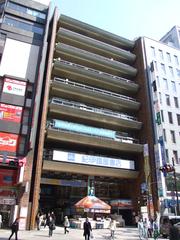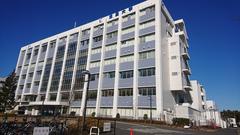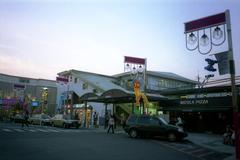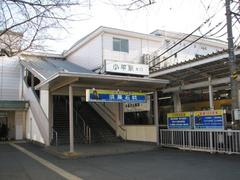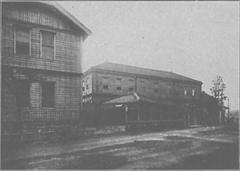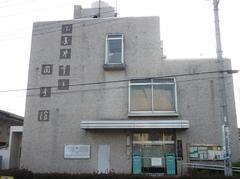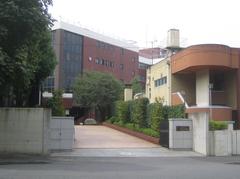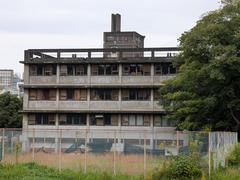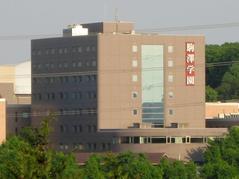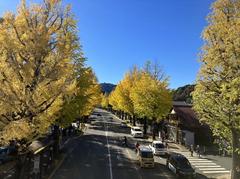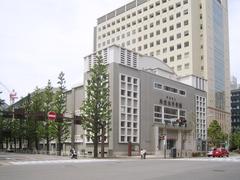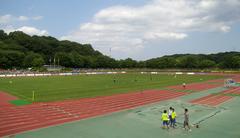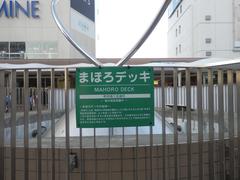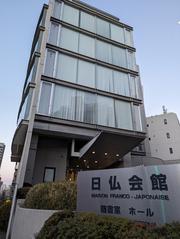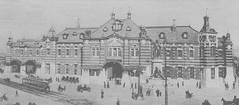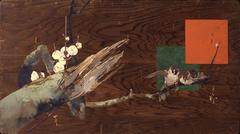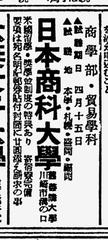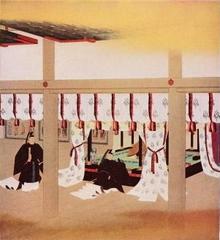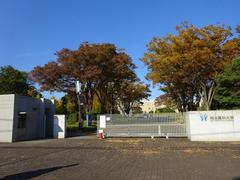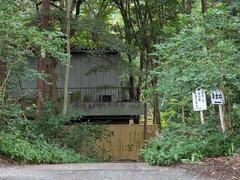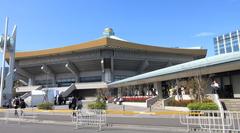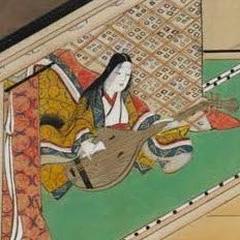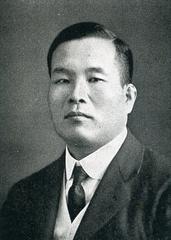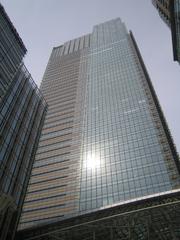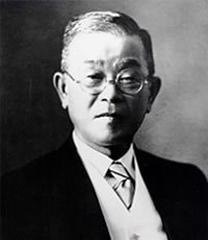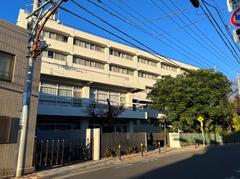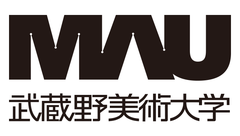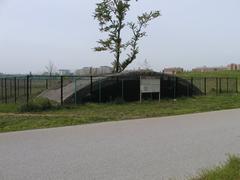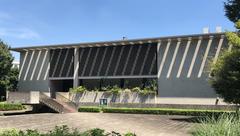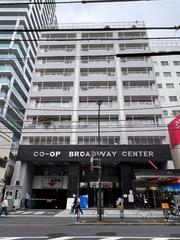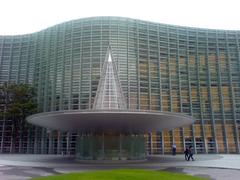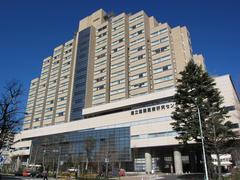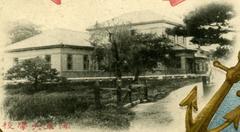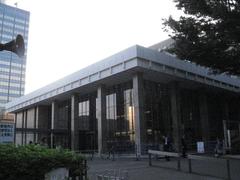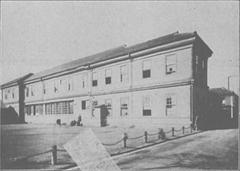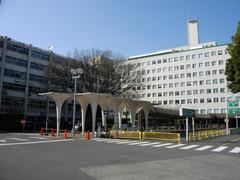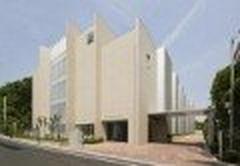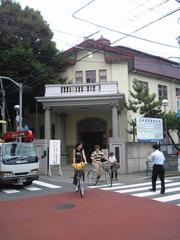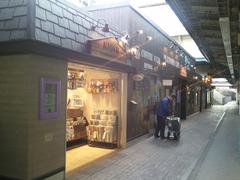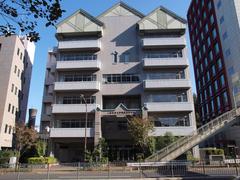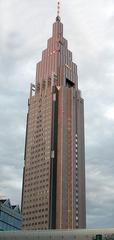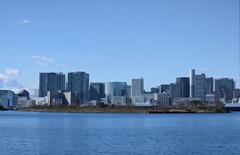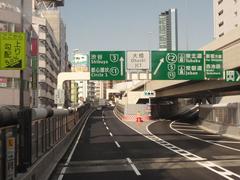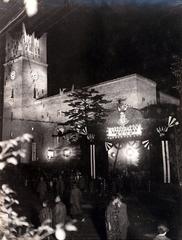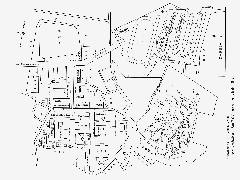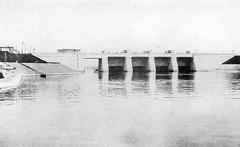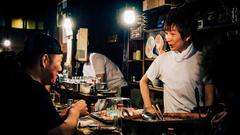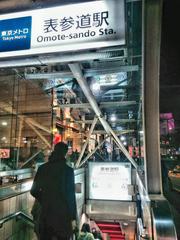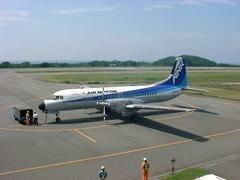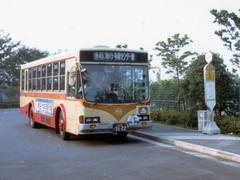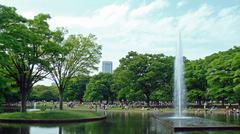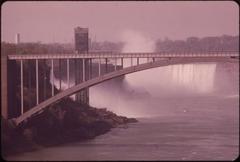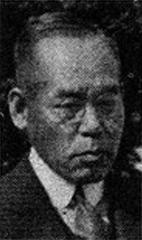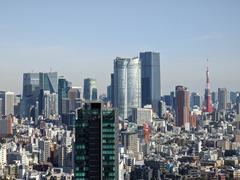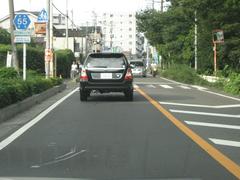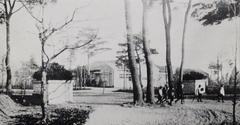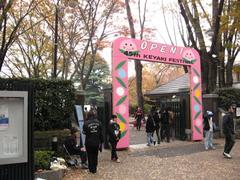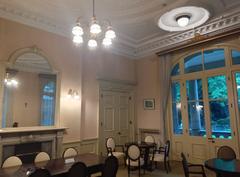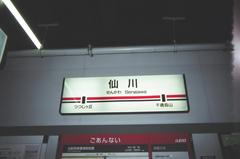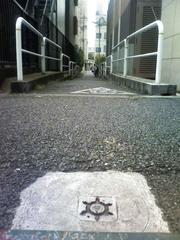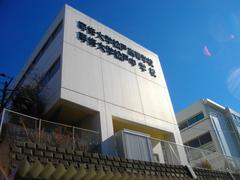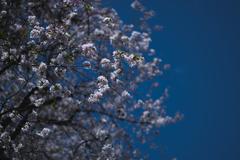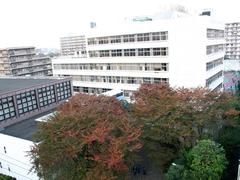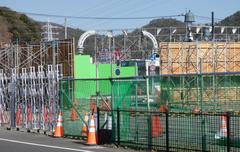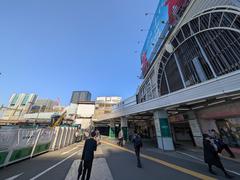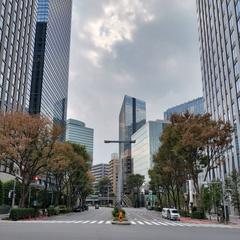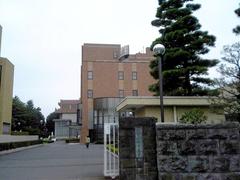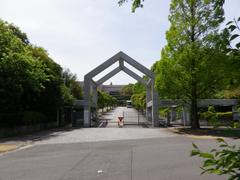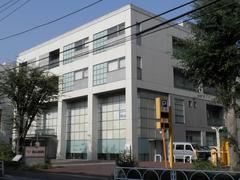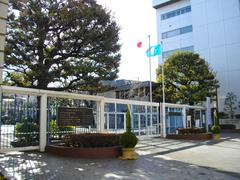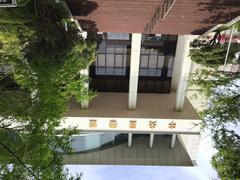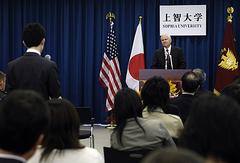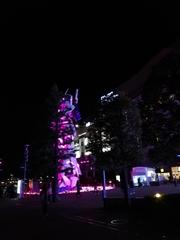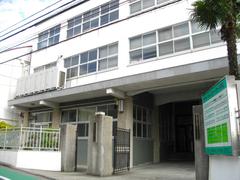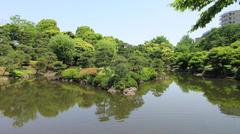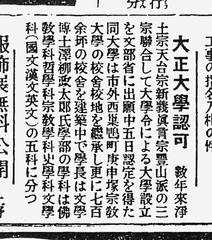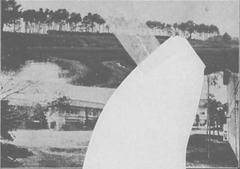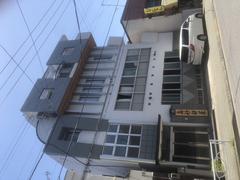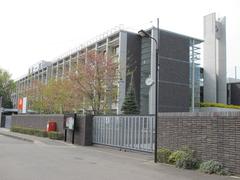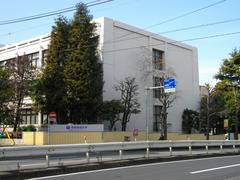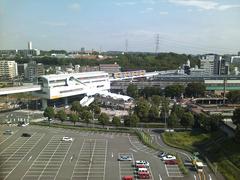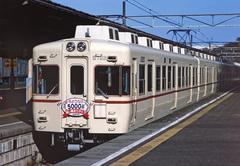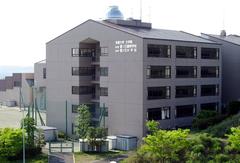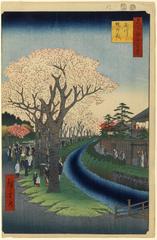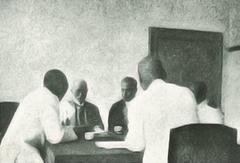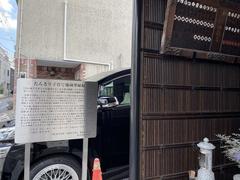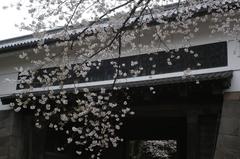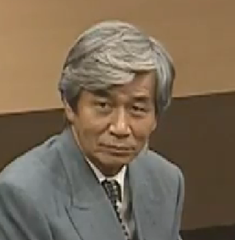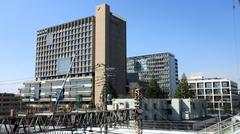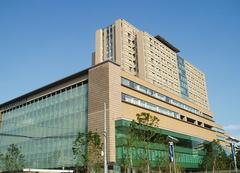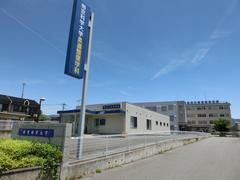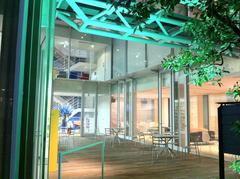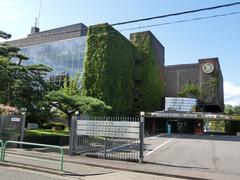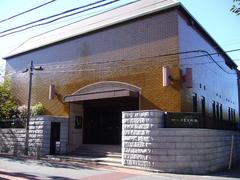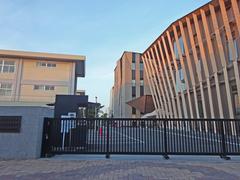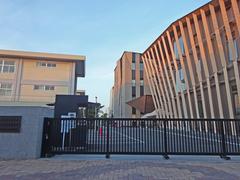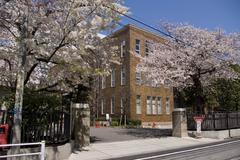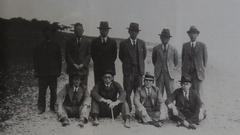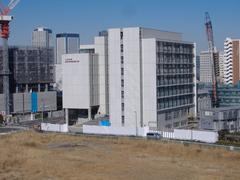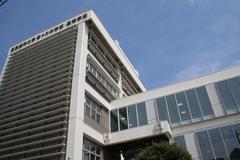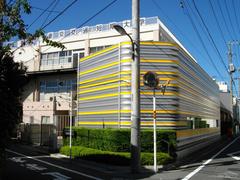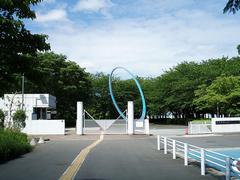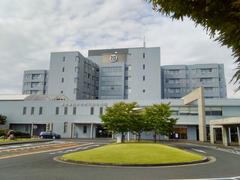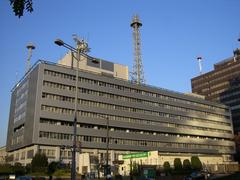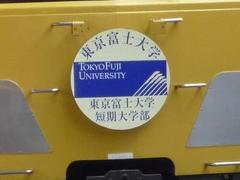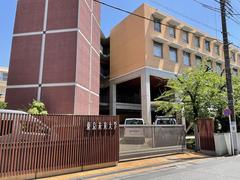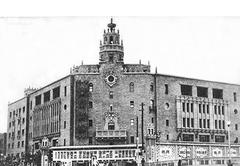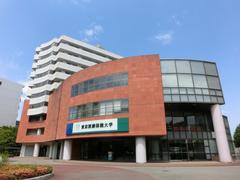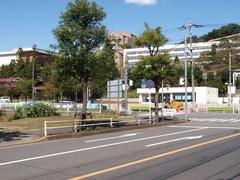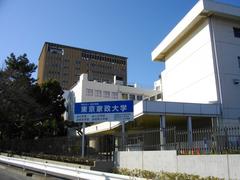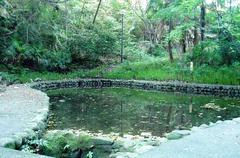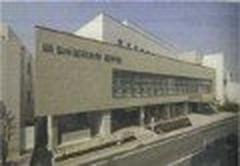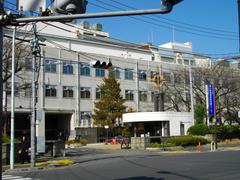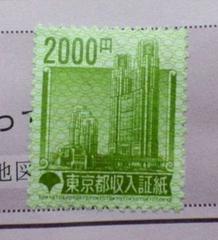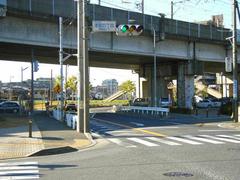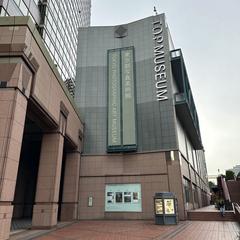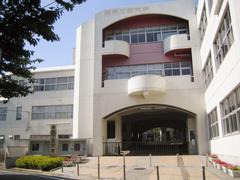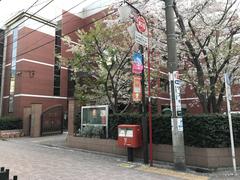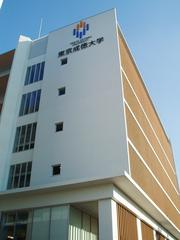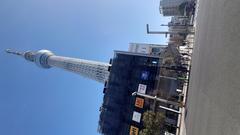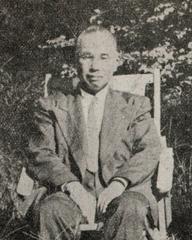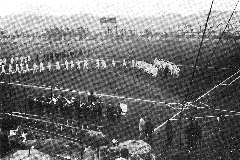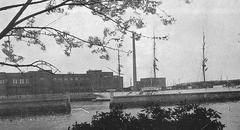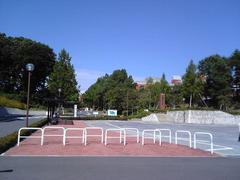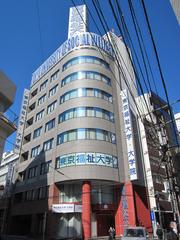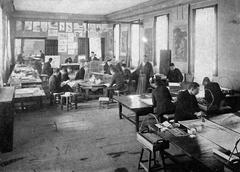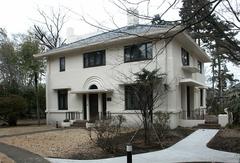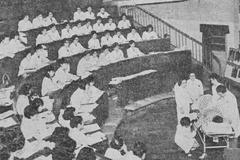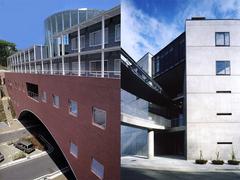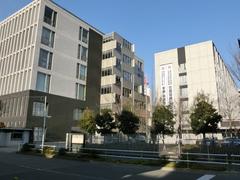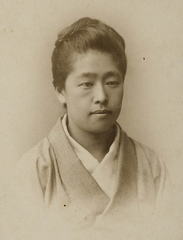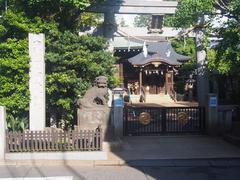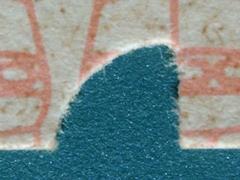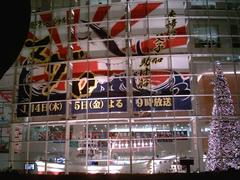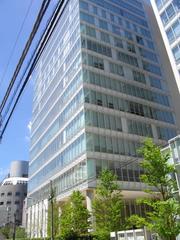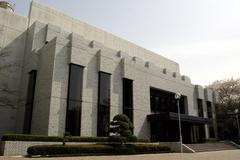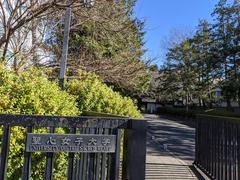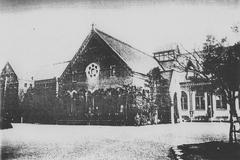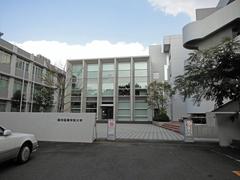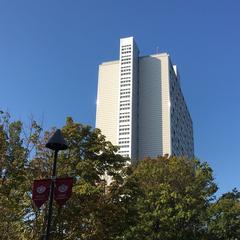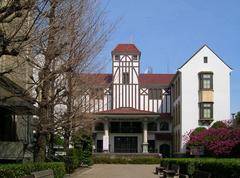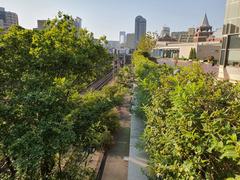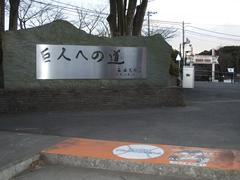
Waseda Campus Visiting Hours, Tickets, and Guide to Waseda University Tokyo Historical Site
Date: 04/07/2025
Introduction: Waseda University’s Legacy in Tokyo
Situated in Shinjuku, Tokyo, Waseda University is widely recognized as a cornerstone of Japanese academic excellence and a vibrant center of cultural heritage. Established in 1882 by Okuma Shigenobu, the university is renowned for its founding philosophy of “independence of learning” (学問の独立, gakumon no dokuritsu), a principle that continues to guide its commitment to academic freedom and critical inquiry. As the alma mater of multiple post-war prime ministers and the birthplace of leaders behind global corporations like Sony and Lotte, Waseda’s influence on Japan’s modernization is profound.
The campus itself is a dynamic blend of tradition and modernity. Visitors encounter historic landmarks such as the neo-Gothic Okuma Auditorium—a Tokyo Metropolitan Historic Building—and tranquil escapes like Okuma Garden. The university also hosts several notable museums: the Waseda University History Museum, Tsubouchi Memorial Theatre Museum, and the Waseda International House of Literature (Haruki Murakami Library), each offering unique perspectives on Japan’s academic, theatrical, and literary history.
Waseda University’s campus is open to the public daily, with free general admission; individual museums operate on set schedules and charge nominal fees. Accessibility is prioritized through ramps, elevators, and bilingual signage. The campus’s proximity to historic sites such as Ana Hachiman-gū Shrine and Hōjō-ji Temple further enhances its appeal for visitors eager to explore the broader cultural landscape of Tokyo.
Guided tours (both in-person and virtual) are available, providing deeper insights into the university’s storied heritage and contemporary vibrancy. The surrounding neighborhood offers affordable dining, bustling markets, and year-round cultural festivities, making Waseda a rewarding destination for tourists and scholars alike.
For official information, interactive campus maps, and virtual tours, refer to Waseda University’s Official Site and the Explore Waseda Campus Virtual Tour.
Table of Contents
- Introduction: Waseda University’s Legacy in Tokyo
- Historical and Academic Legacy
- Architectural and Cultural Significance
- Visitor Information
- Student Life, Events, and Community
- Campus Highlights
- Visitor Tips and Practical Information
- Exploring the Waseda Neighborhood
- Frequently Asked Questions (FAQ)
- Visual and Interactive Resources
- Summary and Call to Action
- References and Official Links
Historical and Academic Legacy
Founding and Evolution
Founded as Tokyo Senmon Gakko in 1882 by Okuma Shigenobu, Waseda University’s evolution reflects Japan’s modernization. Initially focused on political science, economics, law, physics, and English, Waseda expanded to encompass a diverse range of disciplines. It became a full university in 1902, upholding its guiding principle of academic independence and critical inquiry.
Waseda’s Role in Modern Japan
Waseda stands as one of Japan’s top private universities, alongside the University of Tokyo and Keio University. Its alumni network includes six post-war prime ministers and prominent business founders, highlighting the campus’s impact on national leadership and innovation.
Architectural and Cultural Significance
Campus Layout
Waseda’s campus is a tapestry of architectural styles, from the historic Okuma Auditorium to contemporary research centers. Visitors can explore state-of-the-art libraries and tranquil gardens, each reflecting the university’s respect for tradition and embrace of innovation.
Museums and Cultural Institutions
- Waseda University History Museum: Located in Building No. 1, this museum offers exhibitions tracing the university’s evolution, including its roles during wartime and in postwar recovery. In 2025, the special exhibition “Revisiting ‘The Independence of Scholarship’; 80 Years After the War” will be featured (Waseda University History Museum).
- Tsubouchi Memorial Theatre Museum: Known for its comprehensive collections on Japanese and global theater, this museum honors playwright Tsubouchi Shoyo, the first translator of Shakespeare into Japanese.
- Waseda International House of Literature (Haruki Murakami Library): Opened in 2021, this facility is dedicated to the works of Haruki Murakami and supports international literary research (Waseda International House of Literature).
Nearby Historical Sites
Adjacent to campus, landmarks like Ana Hachiman-gū Shrine (established in 1062) and the peaceful Hōjō-ji Temple offer visitors a deeper connection to Tokyo’s spiritual and historical heritage (Tokyo Historical Sites Guide).
Visitor Information
Visiting Hours
- Campus Grounds: Open daily, 8:00 AM – 7:00 PM.
- Museums:
- Waseda University History Museum: 9:00 AM – 5:00 PM (closed Mondays, national holidays).
- Tsubouchi Memorial Theatre Museum: 10:00 AM – 5:00 PM (closed Tuesdays).
- Waseda International House of Literature: 10:00 AM – 6:00 PM (closed Wednesdays).
Tickets and Admission
- Campus grounds: Free admission.
- Museums: ¥300–¥500 (discounts for students/seniors); special exhibitions may incur additional fees.
Guided Tours and Accessibility
- Guided campus tours (in-person and virtual) are available by reservation (Waseda University Campus Tours).
- The campus is wheelchair accessible, with ramps, elevators, and bilingual signage.
Directions and Transportation
- Nearest Stations: Waseda Station (Tokyo Metro Tozai Line); Takadanobaba Station (JR Yamanote Line, Seibu Shinjuku Line).
- The Takadanobaba area offers dining and nightlife popular with students.
Student Life, Events, and Community
Academic Excellence
Waseda University is consistently ranked among Asia’s top institutions, renowned for rigorous research, global collaborations, and interdisciplinary innovation.
Student Clubs and Festivals
Over 600 student clubs and organizations foster a lively campus culture. The annual Waseda Festival, held each November, is one of Japan’s largest student-run events, featuring performances, food stalls, and club activities.
Open Campus and Special Exhibitions
The Open Campus event (August 2–3, 2025) invites visitors to discover academic programs, campus tours, and exhibitions. Special exhibits like the 2025 “Revisiting ‘The Independence of Scholarship’” further engage the public (Waseda Open Campus Information).
Campus Highlights
Okuma Auditorium (Ōkuma Kōdō)
A symbol of Waseda’s heritage, the Okuma Auditorium was completed in 1927 to commemorate the university’s 45th anniversary. Its neo-Gothic architecture and iconic clock tower are central to campus identity, hosting major ceremonies and public events. The building’s grand interiors feature stained glass and intricate woodwork.
Suggested image: Photo of Okuma Auditorium with alt tag “Okuma Auditorium at Waseda University, Tokyo” (Visit Waseda; Tokyo Weekender)
Okuma Garden
Behind the auditorium lies Okuma Garden, a tranquil Japanese garden originally part of Okuma Shigenobu’s residence. Its winding paths, pond, and seasonal flora make it a favorite spot for reflection, especially during cherry blossom and autumn foliage seasons.
Suggested image: Scene of Okuma Garden with alt tag “Traditional Japanese garden at Waseda University” (Visit Waseda)
Waseda University Library (Central Library)
Among Japan’s largest academic libraries, the Central Library houses over 5.6 million volumes, including rare manuscripts and historical documents. While reading rooms are limited to students and faculty, public exhibitions are occasionally held (Wikipedia).
Tsubouchi Memorial Theatre Museum
A destination for drama and performing arts enthusiasts, this museum’s collections span scripts, costumes, and stage models from Japan and abroad. Admission is generally free, with occasional special exhibitions (Tokyo Weekender).
Waseda Memorial Hall
This multi-purpose venue hosts university ceremonies, sports, and cultural performances. Its modern design contrasts with nearby historic buildings, symbolizing Waseda’s progressive spirit (Visit Waseda).
Shigenobu Okuma Statue
Erected in 1932, this bronze statue honors the university’s founder. Located near Okuma Auditorium, it’s a popular photo spot, especially during key academic milestones (SkyTicket).
Waseda University Museum
The museum showcases the university’s history and academic milestones, with exhibits ranging from Meiji-era artifacts to memorabilia from notable alumni (Tokyo Weekender).
Cafeterias and Student Life Spaces
Campus cafeterias and lounges offer affordable Japanese and international cuisine. These lively spaces provide an authentic window into student life and are generally open to visitors (Waseda University Campus Tours).
Public Art and Modern Architecture
Waseda’s campus features contemporary architecture and public art, from innovative research centers to outdoor sculptures, reflecting the university’s forward-looking vision (Visit Waseda).
Visitor Tips and Practical Information
- Best Times to Visit: Cherry blossom season (late March–early April) and autumn foliage (late November). Weekdays are generally less crowded.
- Photography: Permitted outdoors and in most public spaces; respect restrictions inside buildings.
- Accessibility: Ramps, elevators, and English-language signage support inclusive exploration.
- Nearby Attractions: The Waseda neighborhood features sites like Anahachiman Shrine and a range of dining options.
- Campus Access: Outdoor areas are open to the public. Some buildings require visitor registration or special tickets, particularly during events and exhibitions.
Exploring the Waseda Neighborhood
Historic and Cultural Landmarks
- Anahachimangu Shrine: A 10th-century Shinto shrine open daily, hosting annual festivals.
- Kansen-en Park: An Edo-period garden, ideal for hanami and seasonal strolls.
Dining, Shopping, and Entertainment
- Eateries: Student-friendly restaurants such as Ramen Nagi and Kitchen Origin, as well as international options like La Boheme.
- Shopping: Hanazono Shrine Antique Market (weekends) and Waseda Book Center (daily).
- Arts: Waseda Shochiku Cinema offers curated film screenings, and the area hosts live music venues.
Parks and Seasonal Events
- Toyama Park and Edogawa Park: Open daily for relaxation and scenic walks.
- Festivals: July brings summer festivals and Tanabata celebrations; autumn features vibrant leaf viewing.
Transportation
- Metro: Waseda Station (Tokyo Metro Tozai Line) and Takadanobaba Station (JR Yamanote Line).
- Other Options: Buses and bike-sharing services are widely available.
Frequently Asked Questions (FAQ)
Q: What are the Waseda University campus visiting hours?
A: The campus is open daily from 8:00 AM to 7:00 PM; museum hours vary.
Q: Are there entrance fees?
A: Campus grounds are free; museums and special events may charge fees.
Q: Is the campus wheelchair accessible?
A: Yes, with ramps, elevators, and English-language signage.
Q: Are guided tours available?
A: Yes, both in-person and virtual tours are available by reservation.
Q: How do I get to Waseda University?
A: The nearest stations are Waseda (Tokyo Metro Tozai Line) and Takadanobaba (JR Yamanote Line).
Visual and Interactive Resources
Explore interactive campus maps, high-quality images, and virtual tours to plan your visit:
Suggested Media:
- Interactive campus map
- Virtual tour videos
- Photos with descriptive alt tags such as “Waseda University campus visiting hours” and “Tokyo historical sites near Waseda”
Summary and Call to Action
Waseda University’s campus offers a compelling journey through Japan’s academic, cultural, and historical landscapes. From architectural icons like the Okuma Auditorium to vibrant student life and celebrated festivals, Waseda is a dynamic destination for education, exploration, and community. Use this guide for essential information on visiting hours, ticketing, and local attractions to make the most of your Tokyo experience.
For real-time updates, event schedules, and interactive resources, download the Audiala app, explore our related articles, and follow Waseda University’s official channels.
References and Official Links
- Waseda University Official Site
- Waseda University History Museum
- Waseda International House of Literature
- Tokyo Historical Sites Guide
- Waseda Open Campus Information
- Visit Waseda
- Wikipedia
- SkyTicket
- Waseda University Campus Tours
- Tokyo Weekender



















